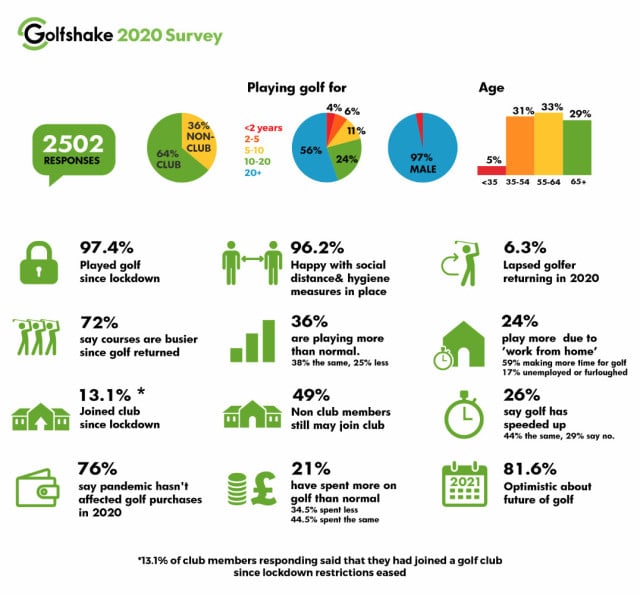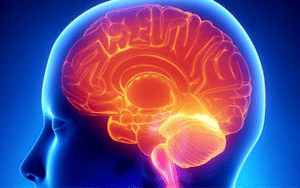Golf is Booming – Here’s Why
The Golf courses in my area have never been busier and this is reflected nationally, reversing the trend of decline that was reported for the previous few years. England Golf has reported over 20,000 new members since May, with rounds played at 40% more than last year.

I wonder if our experience straight after lockdown may go some way towards explaining this trend.
I’m currently under my own house arrest, in self isolation, as my daughter has tested positive for Covid-19. Whilst my son and I are currently fine, this enforced isolation has given me some time to reflect on my own and my Golf Clients experiences after the first lockdown here in the UK.
Many of the clients that I have seen since the first lockdown, have told me that the first few rounds of golf that they played after lockdown were some of the best and most enjoyable rounds that they had ever played. My own experience was similar. The pure joy of playing golf was much more present than normal and my performance improved to new levels.

Whether you have recently experienced this or not I’m pretty sure most of you will recall a similar change in performance when returning to golf after not playing for some time.
We hit the golf ball better and recovered from our mistakes with ease. Our short game was sharp and we experienced more freedom in all aspects of the game.
For this to happen something must have shifted. Since most of us had limited or no access to practice facilities for all parts of our game, we probably didn’t develop more technical skill.
It’s fair to say that we played better with less practice, not more.
I have a theory that may go some way to explaining this phenomenon.
Just like the self isolation that I currently find myself in has forced me to change many of my daily habits and routines, lockdown had a similar affect on golfers attitudes and mindset.
When we returned to playing golf after lockdown we were all so grateful to be playing again. There were no competitions. We played purely for the joy of playing. With much less emphasis on our own personal story within golf,

we played these few rounds with a selflessness that is uncommon in our usual battle to beat playing partners or handicap. It seemed like without the need to win running the whole show our ego’s were less interested.
The experience for many clients was one of revelation. The hours spent hitting this little ball around the golf course went beyond their usual frustrations and reintroduced the timeless simplicity of childhood play for many of them. Losing ourselves in play until we were called in by our parents for our dinner is a memory that many of us share from the past and golf after lockdown took on a similar feel.
Instead of trying really hard to play good golf and trying to remember all of our tips and thoughts, our post lockdown attitude allowed us to let go of any struggles and to start again with a beginners mind. None of us knew how we were going to play after such a lengthy lay off, but for once it didn’t really matter. This lack of expectation or anxiety about the outcome is at the heart of many a good performance and when we adopted this state of mind an effortlessness emerged that saw us performing at levels that we assumed needed much more sweat and tears to achieve..
We swung with more awareness of our bodies, read the greens better and putted with more freedom. We even took in and appreciated our surroundings and playing partners like never before. The experience was richer in every way compared to pre lockdown. We were back playing our beautiful game of golf but experiencing it in a very different way .

Research shows that these experiences lift us above normal awareness and propel us further and faster along the road of high performance.

If you asked neuroscientists about this phenomenon of golf after lockdown they may well tell you that what you experienced was a combination of different parts of the brain lighting up along with a cascade of chemicals. Transient hypofrontality, transient hyerconnectivity, default mode network interuption and cortico thalamic gating would show up on brain scanning equipment along with
a change in neurochemistry with norepinephrine, dopamine,anandamide, seratonin and endorphins being released.
How do they know? Because the scientific world has been able to study these peak or flow experiences recently more than ever. This altered state of consciousness was what the Ancient Greeks called ecstasis and today is often called FLOW. Plato described ecstasis as an altered state where our normal waking consciousness vanishes completely, replaced by an intense euphoria and a powerful connection to a greater intelligence.

Extreme athletes call it flipping the switch, the state they arrive in when the danger levels force normal consciousness to be replaced by the FLOW state. But it seems that we don’t have to throw ourselves off a huge cliff wearing nothing but a wingsuit to experience this state. We can occasionally find it in golf and it feels so good to us when we get a glimpse of it, that it’s easier to understand why these extreme athletes continue to risk their lives to touch it.
So what happens next? For most of us after a few rounds we drop out of this FLOW state and the old frustrations and expectations resume along with the notion that we should try to control more stuff in order to get what we want. Our enjoyment and performance drops off. For some this drop continues and this is when I often get called in to help stop the fall.
There is no doubt that the uptake in golf recently is in part down to the safe physical exercise and ease with which to keep social distance. This huge surge may also, in part, be down to us re-evaluating our priorities in life.
Personally, I have heard so many stories of golfers climbing to new performance levels immediately after lockdown only to have these gains fall away again, that I can’t help but think this glimpse of our true potential and release from our old conditioning, has ignited a fire within golfers to explore another way of finding joy and fulfilment on the golf course. A way of playing that brings with it a sense of selflessness, timelessness, effortlessness and richness.
If you can relate to this then I encourage you to take some time to reflect on how you approach the game of golf and how you play the game. What could the future hold for you if you let go of some of your old conditioning and you played each round of golf with the same sense of wonder and ease and freedom from the score. It seems high performance levels in golf may not be as far out of reach as we once believed and that with some subtle shifts in attitudes and focus, we can all enter this field, where the limits of our potential are not defined by our past performance.
